


A podcast about how hormones shape our world.
Latest episode:
Who you gonna call? Mythbusters!
About Hormonal
Hormones affect everyone and everything: from skin to stress to sports.
But for most of us, they're still a mystery.
Even the way we talk about hormones makes no sense. ("She's hormonal.")
So let's clear some things up. Each week, Rhea Ramjohn is asking scientists, doctors, and experts to break it all down for us.
Subscribe on your favorite platform:
Episodes
- Season 1
- Season 2

Episode 0
August 25, 2020
A Sneak Peek at Season 2
As we work hard on Season 2 of the Hormonal podcast, we’re dropping into your feed with a special request, and a small behind the...
5 min
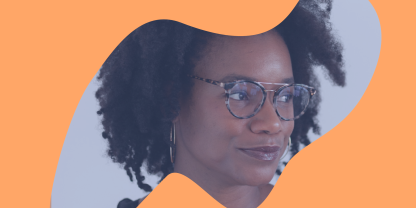
Episode 1
October 11, 2020
Hot or not? Birth control & sex drive
How birth control affects your sexual desire, self image, and weight fluctuations.
25 min
Support Hormonal & the period tracker that’s different from the rest.
Subscribe to Clue Plus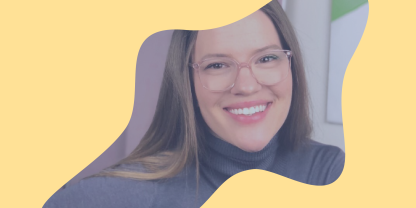
Episode 2
October 19, 2020
The ABC: Abortion & Birth Control
What’s it like to get an abortion and the surprising ways the pandemic is changing abortion access.
34 min
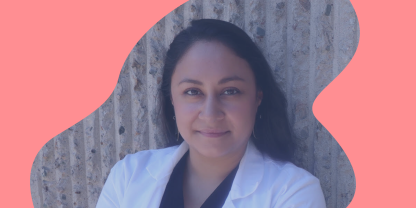
Episode 3
October 26, 2020
The many sides of side effects
Hormonal birth control: positive, negative, and neutral effects
33 min
Support Hormonal & the period tracker that’s different from the rest.
Subscribe to Clue Plus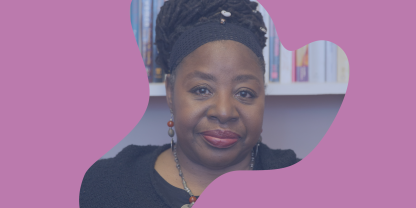
Reproductive choice and reproductive justice
with Dr. Loretta Ross
Episode 4
November 2, 2020
Reproductive choice and reproductive justice
Accessing birth control against the odds
35 min

Episode 5
November 9, 2020
Happy birthday, birth control
Controversy and celebration on the 60th anniversary of the pill
42 min

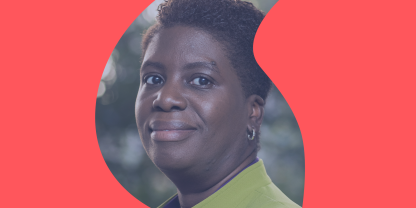
Episode 7
November 23, 2020
Risky business: birth control during COVID-19
COVID-19 is changing how we access birth control
30 min
Support Hormonal & the period tracker that’s different from the rest.
Subscribe to Clue Plus
Who you gonna call? Mythbusters!
with Lynae Brayboy, Amanda Shea & Hajnalka Hejja
Episode 8
November 30, 2020
Who you gonna call? Mythbusters!
Clue’s Science Team busts your birth control myths
37 min
Credits
Season 2
Executive Producer: Kassandra Sundt
Host: Rhea Ramjohn
Editorial Help from: Amanda Shea, Steph Liao, Nicole Leeds
Clue Design: Marta Pucci & B.J. Scheckenbach
Web Team: Yomi Eluwande, Jane Parr-Burman, Maddie Sheesley
Special Thanks: Trudie Carter, Ryan Duncan, Aubrey Bryan,
Claudia Taylor, Léna Calvarin, Lynae Brayboy
Mixing and recording help from: Bose Park Productions & Rekorder Studios in Berlin.
About Clue
Clue is a period tracking app that uses data and science to help women and people wih cycles to understand their bodies. It's also a menstrual and reproductive health encyclopedia.
Learn more about the Clue app and check out what Clue is doing to advance menstrual health research.
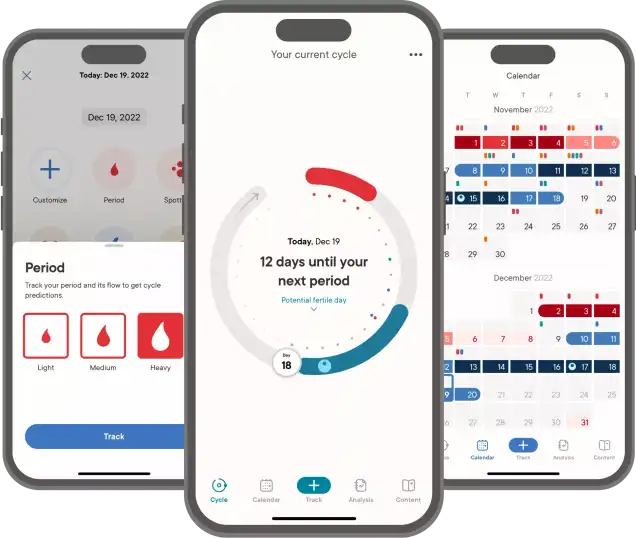
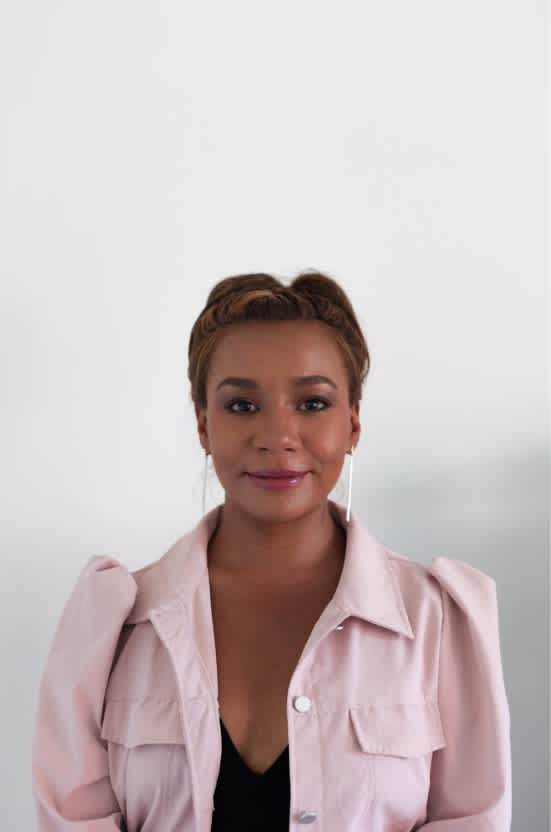
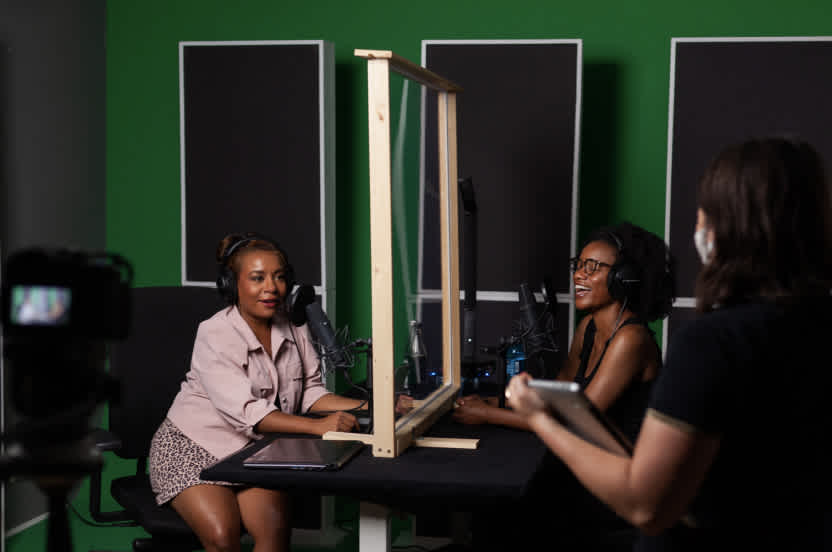
Rhea Ramjohn,
host of the Hormonal Podcast


Rhea Ramjohn,
host of the Hormonal Podcast
Your Host
The more knowledge we have about our hormones, our medical & menstrual care, and our reproductive rights, the more we empower ourselves and one another.
Hormonal has offered me the true privilege of speaking with people who have the expertise on the scientific knowledge about our hormones and cycles, as well as those sharing their lived experiences, caring for people with menstruation and how, all combined, shapes our lives everyday.
Gathering facts as well as personal stories are so vital to our understanding of our health, our his/herstories, and our cultures. I deem it a privilege because we haven't had many platforms nor opportunities for menstrual health information being broadly accessible.
Episode 4
Reproductive choice and reproductive justice
Reproductive choice and reproductive justice
Accessing birth control against the odds
About
How do systems of oppression such as racism, ableism, sexism, and so many more, make it harder for some of us to access reproductive care? To talk about this, we’re going to explore the theory of reproductive justice.
Transcript
This transcript and interview were edited for clarity.
On Hormonal we explore the science behind hormones. But we also talk about society and the world around us. We know that there are lots of women who have periods and lots who don’t. We also know that there are people who aren’t women who have periods too. We also know we have listeners who have never had periods. We hope you feel welcome, even when a term that a guest uses maybe doesn’t apply to you.
At Clue, we believe that our identities are not determined by our bodies.Thanks for listening to Hormonal.
Rhea: You’re listening to Hormonal. I’m your host, Rhea Ramjohn. This season on the Hormonal podcast, we’re looking at birth control.
Something I’m learning as we go through this season is that birth control is a sticky subject. There are so many differences among various people. And two people living in two different countries, or sometimes two different parts of the same country, can have a completely different menu of options.
This made me wonder: how do existing inequalities, and structures that perpetuate those inequalities, affect who can access birth control? And ya know what, I’m just going to name those inequalities: racism, classism, sexism, transphobia, queerphobia, ableism, and, unfortunately, many, many more.
How do all these oppressive structures limit who can access birth control? But listeners might know me by now, I like to name those inequalities in hopes that we can change them.
How to address unequal access to birth control, and much much more, is enveloped in the theory known as reproductive justice. It’s a big topic, and to explore it today, we’ll be talking to Dr. Loretta Ross.
She’s a professor at Smith College in Northampton, Massachusetts, co-founder of the Sister-Song Collective in Atlanta, Georgia, and one of the co-originators of the concept of reproductive justice.
She joins us now from Atlanta, and just a note for our listeners, that Dr. Ross is quarantining due to COVID-19, so you may notice a difference in the recording for this episode.
Loretta, thanks for joining us on the Hormonal podcast.
Loretta Ross: Thanks for having me on your show.
Rhea Ramjohn: Let’s start with a basic, but I think important question: What is reproductive justice?
Loretta Ross: We start with three basic tenants. First of all, every human being has the human right to decide not to have a child. And that includes the right to use abortion, birth control, abstinence And that lands us squarely in supporting what, the pro-choice movement advocates for. But because we were black women, creating the framework, always subjected to various ideologies and strategies of population control. We have a second tenet, which is the human right to have the children that you want to have under the conditions under which you want to give birth. And that has spawned another movement called Birth Justice, which talks about refusing unnecessary cesareans, respect for your birthing plan, the use of midwifery and doulas. And then the third tenet of reproductive justice is the right to raise your children in safe and healthy environments. Which brings us into conversation with things like the Black Lives Matter movement, gun control, environmental issues like climate change, housing justice, food justice, on and on. So it became a very capacious and expansive framework. And then recent iterations of it have added a fourth tenant, which talks about bodily autonomy and the right to affirm your own gender identity and the right to sexual pleasure. So it started out with three tenants, it now has four, and then different people adapt reproductive justice to their own particular circumstances. So, for example, indigenous women here in the States talk about sovereignty and treaty rights as a reproductive justice issue, just the same way that undocumented immigrants talk about immigrants rights as a reproductive justice issue. The mothers of murdered children by police and law enforcement talk about the right to have your child live, as a reproductive justice issue. So it's adaptability, and flexibility means that many people who are looking for a more intersectional theory to talk about what's actually going on in their lives are gravitating towards the reproductive justice framework.
Rhea Ramjohn: What was the environment that was percolating at the time, that lent itself to the creation of the Movement for Reproductive Justice. You were one of the black women involved with the formation of this concept. So could you tell us what was happening? Who was there? Tell us a bit about that story.
Loretta Ross: Well, you have to go back to 1994, quite a bit was happening that year, Nelson Mandela had been released from prison. The O.J. Simpson trial was dominating the airwaves. And in particular, Hillary Clinton, then first lady, was trying to shepherd through Congress a revision of our health care laws because obviously the United States does not have universal health care. And so her deputies made a pitch to a pro-choice feminist conference in Illinois in the summer, June, of 1994, asking this feminist conference to lead in supporting the health care reform proposal that they had put together as Democrats. But unfortunately, they had decided that if they omitted reproductive health care from the health care proposal, that they could persuade Republicans to support it because it didn't reference or include abortion. Yet when we heard this proposal, we thought it was bonkers because why would you ask women to support a health care plan that omitted reproductive health care? When our first “on becoming a woman” moment is our feet up in stirrups. I mean, reproductive health care is the main driver of women to the doctor. And so 12 black women, including me, started talking about the ridiculousness of what we'd heard that day in one of our hotel rooms. And we decided that the first problem was that abortion was isolated from all the social justice issues that really affect whether an unplanned pregnancy is terminated or is kept. For example, if a woman doesn't feel that she has health care or housing or can continue her education or continue to work her job, even a planned and wanted pregnancy may result in an abortion. But if those other human rights issues are taken care of, like housing, health care, employment, education, security, then even an unplanned pregnancy becomes a wanted pregnancy. And so the isolation of abortion from other human rights and social justice issues didn't makes sense to us. So we spliced together the concept of reproductive rights and social justice. And that's how we coined the phrase reproductive justice. And then we started campaigning around embedding abortion rights into the human rights social justice framework. On August 16th, 1994, we took a full page ad out in The Washington Post with over 700 black women demanding that health care reform include reproductive health care, black women for health care, that's what we called the ad. And then three years later, Sister Song Women of Color Reproductive Justice Collective was organized as a coalition of women of color working on reproductive health rights and freedom issues. And so that became our platform for organizing.
Rhea Ramjohn: Loretta thank you so much for that. I just want to take a moment to say here that I am vigorously shaking my head in agreement in pure affirmation of everything that you're saying. But I find not only the topic so incredibly important, but it is something that I am also personally passionate about, especially the third tenet of, um, of reproductive justice. You know, the right to raise your family and to live in safe environments. Thank you so much for explaining that. It brings me to my next question, how does the theory of reproductive justice differ from how mainstream feminists might talk about reproductive rights?
Loretta Ross: Reproductive rights is a complementary framework to reproductive justice, but let me give you all three of them. Reproductive health is one framework that deals with individual service provision for people who need health care. It's a very individualized way of looking at our healthcare system. Reproductive rights is the advocacy lane, trying to keep abortion and birth control legal, affordable and accessible under a U.S. constitutional system. Reproductive justice is an organizing framework. It's about how do you bring all the communities and movements affected by reproductive politics together to advocate for the full human rights of everyone? So there is no conflict between reproductive health, reproductive rights and reproductive justice. They are three dimensions of the same body of work.
Rhea Ramjohn: Zeroing in specifically on birth control, which is our overarching theme for this season. Specifically through the reproductive justice lens, what are the limits for accessing birth control in the United States? So our original question as we approached this episode was: “Who can really access birth control?” So who can access this crucial medical care and who cannot? Who's facing challenges accessing birth control?
Loretta Ross: Well, it may be hard for your listeners to understand in other countries, but health care in the United States is predicated on your ability to pay for it. And obviously, people who have the financial means to access not only birth control, but abortion, have a better shot at having their desires respected and their needs met. The people who are most vulnerable, of course, are poor women of all races because they have to go to public health services or if they're Native American, they have to go to the Indian Health Services. And those are the services that are under the most restriction in terms of providing birth control and abortion services and so it is very much a class based system. But it also has a racialized dimension because black women, for example, of course, which I am one, have less access to birth control. And so we have more unintended pregnancies. And so we have more abortions that terminate pregnancies. And the anti-abortion movement tries to seize this one fact that they cherry pick and claim that abortion is "black genocide," and “we have to fight them.” But we also have to fight the racism of our allies who don't understand that focusing on the pregnancy alone is insufficient when you're not talking about the conditions in which the pregnancy is embedded. Because if you're not talking about increased access to better health care, increase access to affordable housing and job security and food security and education justice, then you're really missing how vulnerable people actually make their decisions. But our biggest foe, of course, is the way that the Republican Party here in the United States chooses to use abortion as a way to mobilize their base to support elite political candidates who really don't even care about abortion, but they care about keeping their base animated to oppose the social welfare contract that has totally disappeared under neoliberal capitalism and to deregulate corporations and repeal environmental protections and so forth.
Rhea Ramjohn: Can you elaborate a little bit more for our listeners, the white supremacist roots and influence of birth control in the United States?
Loretta Ross: Well, you can't talk about the United States without talking about the genocide against Native Americans and the enslavement of kidnaped Africans who to work here as a work force. I mean, our racialized capitalist system was created on genocide and exploitation, and yet the kidnaped African women actually brought to America a suitable knowledge about birth control and abortifacients that they knew on the continent. And so they began to use those as a way to restrict their own fertility, even as they became Christianized and were told that these things were sins. There were white doctors who had investigated entire plantations, where the birth rate was not what the plantation owners wanted. And they surmised that there was some secret that black women knew to control their fertility. And that's the only reason we have evidence that it was taking place, because these white doctors were studying why under some owners, black women were having plenty of children and why under others they were not. So it was secret knowledge that was here in the United States and in the hands of black women long before Emma Goldman and Margaret Sanger started campaigning for legalized birth control. And one of the other pieces of evidence we have is that at the end of the civil war, in 1865, between 1865 and 1910, the black birth rate was cut in half. And sociologists have documented that. Now, Sanger started campaigning for it because she was a public health nurse who worked in New York City and was appalled at the maternal mortality rates that she was seeing and the deaths of white women mainly from self-induced abortions. And so that's when she became a staunch advocate for birth control access that women in Europe enjoyed, that wasn't available in the United States because of the 1873 Comstock Law that made it illegal to share information or devices that could be used as birth control. So in the African-American community, we have a long history of desiring fertility regulation, fertility control. But in terms of our fight for reproductive control or what we now call reproductive justice, I believe that black women, as well as indigenous women, because I've heard a lot recently about the organic and indigenous practices around fertility control and abortions. That, again, was suppressed from the white history that is mostly available. But we have a long history, as black women, fighting for the right to control our bodies.
Rhea Ramjohn: How do reproductive justice advocates like yourself think about access to birth control? I'm sure we have many listeners who would say that they see condoms on the shelves at every gas station and pharmacy, and it's easy to purchase over the counter or that doctors can easily prescribe people birth control if they want it. What's your message or response to those listeners or people who think that?
Loretta Ross: Well, obviously, you have to put access in the context of people's lives just because you can buy a condom at any gas station doesn't mean that you'll be able to persuade your partner under patriarchy to use it, or not to sabotage it. I've heard stories of men poking holes in the condom, because they want to control their partner's fertility and get them pregnant, because there may be violence, there may be a number of reasons, why their partner doesn't want to get pregnant and they want to take control of that decision into their own hands. And accessing birth control is far easier than getting it removed when you don't want to use it. For example, the long, the LARCS, long acting reversible contraceptives, are very easy to access. But then when it's time or you decide you want to have children, then it can cost between $800 to $1,000 to get it removed. And so that's not reproductive control. I mean, that's not reproductive self-determination. And so, quite naturally, a lot of people refuse LARCs because of that, because they know that getting it in isn't a problem. Getting it out may be.
And then there's the question of contraceptive safety. I am a survivor of a bad IUD that was called the Dalkon Shield. And that happened to me when I was 23. So the whole concept of intrauterine devices, IUD, has been contaminated because their safety is going to always be questioned because we have so little good regulation of the safety of contraceptives and devices. That people are rightfully alarmed by them, afraid of them. And so it's very complicated when people use too simplistic an analysis to say, well, "If you have access to birth control, why are you having all these babies? Why are you needing abortion and all of that?" Because they don't understand how complicated access becomes, and effective use of it becomes, particularly when we have what we call so much birth control sabotage by the patriarchy. And there's basic patriarchy in the medical care system where doctors and not the women, or the pregnant people, as the modern language is saying now, have to make the choices that make sense for them. There's no such thing as a 100 percent safe birth control method. But people are not being given the full information so that they can make the decisions that make sense for them.
I think the individual woman should be able to decide, well, this birth control method works, this much is, you know, studies are shown it works as well, and it has these risks. Let me decide for myself what risk I'm willing to subject myself to while I choose from a full menu of options. But in poor communities, the birth control that is most often offered in poor communities, are the long acting reversible or non reversible methods like sterilization or the subdermals or the injections and things. So they are not given a full range of contraceptive options, which of course, when that happens, it is coercion.
Rhea Ramjohn: Stepping back out into the framing of reproductive justice at large when it comes to birth control, mainstream thinkers generally only think about not having kids. Controlling that aspect of reproductive choice. But as you pointed out earlier, what about the other part of the equation? The choice to have children? Can you speak a little bit more about that? And again, about how we have the access or the choice to have children
Loretta Ross: Well, I believe that it is a human right to have the children that you want to have and some make quarrel over that. But I think it is a human right. And I was actually asked by a reporter, this past weekend, whether or not black fertility rates were the same as white fertility rates. And if you look at the data, I think the average white family has 2.1 children and the average black family, even single black women have 2.3 children. So there's no large difference between the number of children that black or white families choose to have. The question becomes whose children get demonized? [Laughter] And whose children are traded like commodities on the market? Because there is an intense desire for white babies and a definitely decreased desire for black babies. But still, our media makes it sound like there's too much breeding, too many babies in the black and brown and indigenous communities and too few babies in the white communities. And so we're subjected to this narrative that the facts don't substantiate, that's around arousing white fear of black people, white fear of breeding mothers and welfare queens and stuff, which is, of course, the rhetoric of fear that the Republican Party pushes to arouse what we call white grievance anxieties and white extinction anxieties for fear that they're getting out bred. And, I'm convinced that all the restrictions on birth control and abortion aren't about the desire to have more brown and black babies, but about trying to compel white women to have more babies. So if you look at our current politics through a racial justice lens, you can see how it operates because when black women have babies, what do we do? We watch them get killed by police or go to substandard schools or live in toxic neighborhoods built on top of waste dumps and things like that. So all of this mealy mouthed, "oh, every baby has a right to live," is really just rhetoric, misleading rhetoric, when in fact, it's only certain babies that have great worth and other babies are totally devalued and dehumanized. And so, that second tenet the right to have your children is something that we emphasize along with the right not to have children. Because this thinking around, out of control black and brown births is what dominates and animates a white supremacist ideology under which we live. Even though the facts don't support their fears.
Rhea Ramjohn: Loretta, this is a crucial point, but let me just pause you right there. We’ll return to this topic of reproductive justice and who can really access birth control in just a moment, but first, we’ ll take a quick break.
Hormonal is brought to you by Clue. The period tracking app, and menstrual health encyclopedia.
And Clue needs your help. Not only to fund the work here at Clue, bringing you an app that takes your cycle seriously, but to fund important research, support data privacy, and keep the app free for everyone.
If you believe in that mission, become a Clue Plus member. And check out Clue-dot-plus to learn more.
Alright, back to the show.
Rhea Ramjohn: You’re listening to Hormonal. I’m Rhea Ramjohn. Dr. Ross, from the reproductive justice lens, what are some specific examples of improvements that can be made to both birth control and birth control access?
Loretta Ross: Well, it starts with having universal health care. It's very difficult to make decisions about one's fertility in a context where you don't have access, guaranteed access to health care. And if there is prosecution and persecution of people who are undocumented, that has an impact on whether a pregnant undocumented person chooses to go to the hospital for prenatal care, for fear of deportation. And if you live on an Indian reservation where they're trying to build a pipeline for oil through the middle of your water supply, that also affects your reproductive decision making. And so what we'd like people to do is to connect up the dots and use a more holistic analysis of the context in which people are forced to make their reproductive health care decisions and not just isolate it or reduce it to the biological issues, but look to the non-biological issues that also have an impact on reproductive decision making. And that's what reproductive justice demands.
Rhea Ramjohn: You co-originated this theory, this concept of reproductive justice. But how have you seen it spread and evolve around the world over the last few decades?
Loretta Ross: Well, we are very surprised... When I say the we, the twelve black women who created it, how rapidly reproductive justice migrated across the world. We did not intend for it to be, because in many countries they talk about sexual rights and reproductive justice, SRRJ, and they are much more conversant with the human rights framework than we are here in the United States. And so since reproductive justice is in essence, a human rights way of making claims about the embodiment of oppression and the enjoyment of freedom, I personally was surprised when other countries started using the reproductive justice analysis and framework to make claims that they were already making under the human rights framework.
And so we didn't intend it to be such a transnational framework. But it is proven to be so. Because in some countries, the term human rights is equally stigmatized and contaminated. And so they find reproductive justice a more politically palatable way to talk about reproductive politics. In other countries, abortion is the word that’s stigmatized. And so they use reproductive justice as an entree point to have those conversations. And in some countries like South Africa, they fully embrace reproductive justice as the way that they're going to underpin their entire public health system. In Ireland, I’ve found that people resonated with reproductive justice because it enabled them to take on the challenge of the Catholic Church in Ireland and pass some, for the first time laws, permitting abortion. And so each country has its own political matrix in which it needs the work. And they find that reproductive justice can provide opportunities and egress in a way that they hadn't been able to do so before.
Rhea Ramjohn: So birth control is just one part of the tenets that you mentioned that define reproductive justice or the theory, the concept of reproductive justice. Can you tell me in which other areas would you like to see improvements?
Loretta Ross: Well, first of all, it takes a healthy mother to have a healthy baby. And so if you deny basic standards of health care. And if you don't look at what we call the social determinants of health: racism, access to clean water, good food, housing, security, on and on, then you are front loading people's bodies with negative impacts that's going to lead to a maternal mortality crisis that we're looking at, and infant mortality rates in the United States, in the black community, that are comparable to many in the developing world or in the global south. And so we really insist that one takes a holistic analysis in looking at any data set, whether it's infant mortality, maternal mortality, sexually transmitted infections, all of those things that are medicalized without placing them in the social context in which they are occurring.
Rhea Ramjohn: Thank you very much. And just also a personal question, and maybe this also applies to our listeners. What can we do individually, on an individual level, to support reproductive justice? Other than visiting, of course, and supporting the sister song collective?
Loretta Ross: Well, first of all, don't accept hopelessness and despair because the global rise of these neo fascist movements are designed to teach us to feel hopeless and helpless. And so continue to fight wherever you are for full human rights. We have a saying from the civil rights movement: “That when you see the world is a mess, don't despair, just start cleaning where you are.” And so each of us can become a human rights defender right where we are, even with our families and our communities at our local school boards or whatever. And that's what everybody can do individually. But power is best exerted collectively.
Rhea Ramjohn: Loretta. It was an absolute honor and privilege to be able to speak with you today.
Thank you so much for joining us. Dr. Loretta Ross is a Smith College professor. Co-founder of the Sister Song Collective in Atlanta, Georgia, and a co-originator of the concept of reproductive justice. She joined us today from Atlanta. Dr. Ross, thank you so much for joining us onHormonal.
Loretta Ross: Thank you for having me on your show.
Rhea Ramjohn: Listeners, tell us how reproductive justice is showing up where you live. You can find us at-Clue on Facebook and Twitter. And at-Clue-app on instagram. Or give us a shout via email at podcast at helloclue.com.
And of course, for more information about the sister song collective and how to support their work––check the show notes.
But now, the credits!
Credits
Rhea Ramjohn: Hormonal is hosted by me, Rhea Ramjohn! Our Executive Producer is Kassandra Sundt.
Editorial help from:
Amanda Shea
Steph Liao
Nicole Leeds
Special thanks to:
Marta Pucci
Trudie Carter
Maddie Sheesley
Ryan Duncan
Aubrey Bryan
Claudia Taylor
Léna Calvarin
Lynae Brayboy
Mixing and recording help from Bose Park Productions and Rekorder Studios in Berlin.
Thanks for listening to Hormonal. Please rate and subscribe, and tell a friend! Until next time, I’m Rhea Ramjohn.
Related links:
https://helloclue.com/articles/cycle-a-z/what-it's-like-going-to-the-doctor-when-you're-trans
https://helloclue.com/articles/cycle-a-z/what-to-expect-at-obgyn-when-youre-trans
https://helloclue.com/articles/birth-control/will-coronavirus-impact-access-to-contraception
Check out our free Clue webinar: Racial Disparities in Reproductive Health: https://get.altuslearn.com/racial-disparities-in-reproductive-health
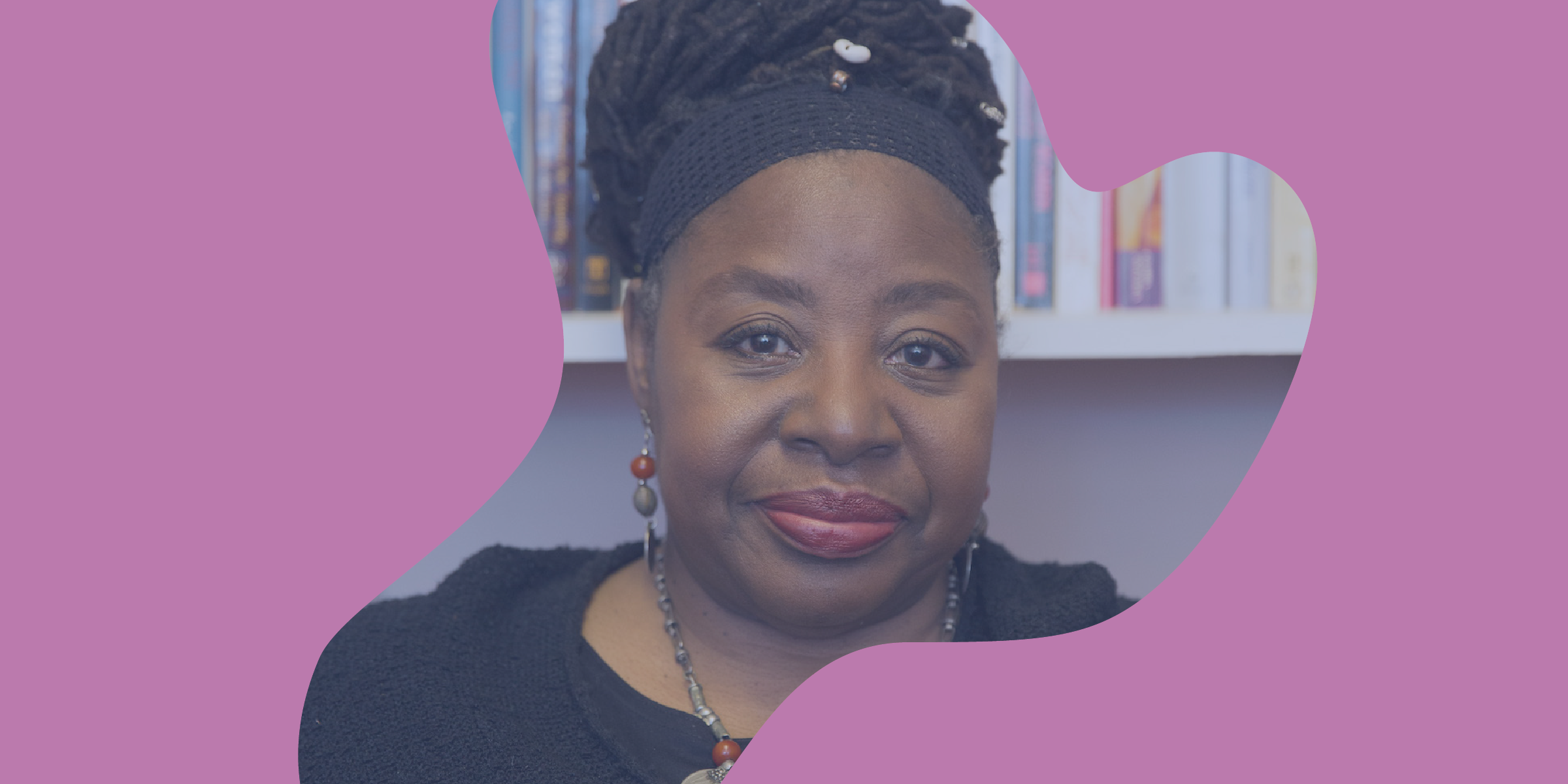
Episode 4
November 2, 2020
Reproductive choice and reproductive justice
Accessing birth control against the odds
About
How do systems of oppression such as racism, ableism, sexism, and so many more, make it harder for some of us to access reproductive care? To talk about this, we’re going to explore the theory of reproductive justice.
"“You have to put access in the context of people’s lives; just because you can buy a condom at any gas station doesn’t mean that you’ll be able to persuade your partner under patriarchy to use it.”"
On Hormonal we explore the science behind hormones. But we also talk about society and the world around us. We know that there are lots of women who have periods and lots who don’t. We also know that there are people who aren’t women who have periods too. We also know we have listeners who have never had periods. We hope you feel welcome, even when a term that a guest uses maybe doesn’t apply to you.
At Clue, we believe that our identities are not determined by our bodies.Thanks for listening to Hormonal.
Rhea: You’re listening to Hormonal. I’m your host, Rhea Ramjohn. This season on the Hormonal podcast, we’re looking at birth control.
Something I’m learning as we go through this season is that birth control is a sticky subject. There are so many differences among various people. And two people living in two different countries, or sometimes two different parts of the same country, can have a completely different menu of options.
This made me wonder: how do existing inequalities, and structures that perpetuate those inequalities, affect who can access birth control? And ya know what, I’m just going to name those inequalities: racism, classism, sexism, transphobia, queerphobia, ableism, and, unfortunately, many, many more.
How do all these oppressive structures limit who can access birth control? But listeners might know me by now, I like to name those inequalities in hopes that we can change them.
How to address unequal access to birth control, and much much more, is enveloped in the theory known as reproductive justice. It’s a big topic, and to explore it today, we’ll be talking to Dr. Loretta Ross.
She’s a professor at Smith College in Northampton, Massachusetts, co-founder of the Sister-Song Collective in Atlanta, Georgia, and one of the co-originators of the concept of reproductive justice.
She joins us now from Atlanta, and just a note for our listeners, that Dr. Ross is quarantining due to COVID-19, so you may notice a difference in the recording for this episode.
Loretta, thanks for joining us on the Hormonal podcast.
Loretta Ross: Thanks for having me on your show.
Rhea Ramjohn: Let’s start with a basic, but I think important question: What is reproductive justice?
Loretta Ross: We start with three basic tenants. First of all, every human being has the human right to decide not to have a child. And that includes the right to use abortion, birth control, abstinence And that lands us squarely in supporting what, the pro-choice movement advocates for. But because we were black women, creating the framework, always subjected to various ideologies and strategies of population control. We have a second tenet, which is the human right to have the children that you want to have under the conditions under which you want to give birth. And that has spawned another movement called Birth Justice, which talks about refusing unnecessary cesareans, respect for your birthing plan, the use of midwifery and doulas. And then the third tenet of reproductive justice is the right to raise your children in safe and healthy environments. Which brings us into conversation with things like the Black Lives Matter movement, gun control, environmental issues like climate change, housing justice, food justice, on and on. So it became a very capacious and expansive framework. And then recent iterations of it have added a fourth tenant, which talks about bodily autonomy and the right to affirm your own gender identity and the right to sexual pleasure. So it started out with three tenants, it now has four, and then different people adapt reproductive justice to their own particular circumstances. So, for example, indigenous women here in the States talk about sovereignty and treaty rights as a reproductive justice issue, just the same way that undocumented immigrants talk about immigrants rights as a reproductive justice issue. The mothers of murdered children by police and law enforcement talk about the right to have your child live, as a reproductive justice issue. So it's adaptability, and flexibility means that many people who are looking for a more intersectional theory to talk about what's actually going on in their lives are gravitating towards the reproductive justice framework.
Rhea Ramjohn: What was the environment that was percolating at the time, that lent itself to the creation of the Movement for Reproductive Justice. You were one of the black women involved with the formation of this concept. So could you tell us what was happening? Who was there? Tell us a bit about that story.
Loretta Ross: Well, you have to go back to 1994, quite a bit was happening that year, Nelson Mandela had been released from prison. The O.J. Simpson trial was dominating the airwaves. And in particular, Hillary Clinton, then first lady, was trying to shepherd through Congress a revision of our health care laws because obviously the United States does not have universal health care. And so her deputies made a pitch to a pro-choice feminist conference in Illinois in the summer, June, of 1994, asking this feminist conference to lead in supporting the health care reform proposal that they had put together as Democrats. But unfortunately, they had decided that if they omitted reproductive health care from the health care proposal, that they could persuade Republicans to support it because it didn't reference or include abortion. Yet when we heard this proposal, we thought it was bonkers because why would you ask women to support a health care plan that omitted reproductive health care? When our first “on becoming a woman” moment is our feet up in stirrups. I mean, reproductive health care is the main driver of women to the doctor. And so 12 black women, including me, started talking about the ridiculousness of what we'd heard that day in one of our hotel rooms. And we decided that the first problem was that abortion was isolated from all the social justice issues that really affect whether an unplanned pregnancy is terminated or is kept. For example, if a woman doesn't feel that she has health care or housing or can continue her education or continue to work her job, even a planned and wanted pregnancy may result in an abortion. But if those other human rights issues are taken care of, like housing, health care, employment, education, security, then even an unplanned pregnancy becomes a wanted pregnancy. And so the isolation of abortion from other human rights and social justice issues didn't makes sense to us. So we spliced together the concept of reproductive rights and social justice. And that's how we coined the phrase reproductive justice. And then we started campaigning around embedding abortion rights into the human rights social justice framework. On August 16th, 1994, we took a full page ad out in The Washington Post with over 700 black women demanding that health care reform include reproductive health care, black women for health care, that's what we called the ad. And then three years later, Sister Song Women of Color Reproductive Justice Collective was organized as a coalition of women of color working on reproductive health rights and freedom issues. And so that became our platform for organizing.
Rhea Ramjohn: Loretta thank you so much for that. I just want to take a moment to say here that I am vigorously shaking my head in agreement in pure affirmation of everything that you're saying. But I find not only the topic so incredibly important, but it is something that I am also personally passionate about, especially the third tenet of, um, of reproductive justice. You know, the right to raise your family and to live in safe environments. Thank you so much for explaining that. It brings me to my next question, how does the theory of reproductive justice differ from how mainstream feminists might talk about reproductive rights?
Loretta Ross: Reproductive rights is a complementary framework to reproductive justice, but let me give you all three of them. Reproductive health is one framework that deals with individual service provision for people who need health care. It's a very individualized way of looking at our healthcare system. Reproductive rights is the advocacy lane, trying to keep abortion and birth control legal, affordable and accessible under a U.S. constitutional system. Reproductive justice is an organizing framework. It's about how do you bring all the communities and movements affected by reproductive politics together to advocate for the full human rights of everyone? So there is no conflict between reproductive health, reproductive rights and reproductive justice. They are three dimensions of the same body of work.
Rhea Ramjohn: Zeroing in specifically on birth control, which is our overarching theme for this season. Specifically through the reproductive justice lens, what are the limits for accessing birth control in the United States? So our original question as we approached this episode was: “Who can really access birth control?” So who can access this crucial medical care and who cannot? Who's facing challenges accessing birth control?
Loretta Ross: Well, it may be hard for your listeners to understand in other countries, but health care in the United States is predicated on your ability to pay for it. And obviously, people who have the financial means to access not only birth control, but abortion, have a better shot at having their desires respected and their needs met. The people who are most vulnerable, of course, are poor women of all races because they have to go to public health services or if they're Native American, they have to go to the Indian Health Services. And those are the services that are under the most restriction in terms of providing birth control and abortion services and so it is very much a class based system. But it also has a racialized dimension because black women, for example, of course, which I am one, have less access to birth control. And so we have more unintended pregnancies. And so we have more abortions that terminate pregnancies. And the anti-abortion movement tries to seize this one fact that they cherry pick and claim that abortion is "black genocide," and “we have to fight them.” But we also have to fight the racism of our allies who don't understand that focusing on the pregnancy alone is insufficient when you're not talking about the conditions in which the pregnancy is embedded. Because if you're not talking about increased access to better health care, increase access to affordable housing and job security and food security and education justice, then you're really missing how vulnerable people actually make their decisions. But our biggest foe, of course, is the way that the Republican Party here in the United States chooses to use abortion as a way to mobilize their base to support elite political candidates who really don't even care about abortion, but they care about keeping their base animated to oppose the social welfare contract that has totally disappeared under neoliberal capitalism and to deregulate corporations and repeal environmental protections and so forth.
Rhea Ramjohn: Can you elaborate a little bit more for our listeners, the white supremacist roots and influence of birth control in the United States?
Loretta Ross: Well, you can't talk about the United States without talking about the genocide against Native Americans and the enslavement of kidnaped Africans who to work here as a work force. I mean, our racialized capitalist system was created on genocide and exploitation, and yet the kidnaped African women actually brought to America a suitable knowledge about birth control and abortifacients that they knew on the continent. And so they began to use those as a way to restrict their own fertility, even as they became Christianized and were told that these things were sins. There were white doctors who had investigated entire plantations, where the birth rate was not what the plantation owners wanted. And they surmised that there was some secret that black women knew to control their fertility. And that's the only reason we have evidence that it was taking place, because these white doctors were studying why under some owners, black women were having plenty of children and why under others they were not. So it was secret knowledge that was here in the United States and in the hands of black women long before Emma Goldman and Margaret Sanger started campaigning for legalized birth control. And one of the other pieces of evidence we have is that at the end of the civil war, in 1865, between 1865 and 1910, the black birth rate was cut in half. And sociologists have documented that. Now, Sanger started campaigning for it because she was a public health nurse who worked in New York City and was appalled at the maternal mortality rates that she was seeing and the deaths of white women mainly from self-induced abortions. And so that's when she became a staunch advocate for birth control access that women in Europe enjoyed, that wasn't available in the United States because of the 1873 Comstock Law that made it illegal to share information or devices that could be used as birth control. So in the African-American community, we have a long history of desiring fertility regulation, fertility control. But in terms of our fight for reproductive control or what we now call reproductive justice, I believe that black women, as well as indigenous women, because I've heard a lot recently about the organic and indigenous practices around fertility control and abortions. That, again, was suppressed from the white history that is mostly available. But we have a long history, as black women, fighting for the right to control our bodies.
Rhea Ramjohn: How do reproductive justice advocates like yourself think about access to birth control? I'm sure we have many listeners who would say that they see condoms on the shelves at every gas station and pharmacy, and it's easy to purchase over the counter or that doctors can easily prescribe people birth control if they want it. What's your message or response to those listeners or people who think that?
Loretta Ross: Well, obviously, you have to put access in the context of people's lives just because you can buy a condom at any gas station doesn't mean that you'll be able to persuade your partner under patriarchy to use it, or not to sabotage it. I've heard stories of men poking holes in the condom, because they want to control their partner's fertility and get them pregnant, because there may be violence, there may be a number of reasons, why their partner doesn't want to get pregnant and they want to take control of that decision into their own hands. And accessing birth control is far easier than getting it removed when you don't want to use it. For example, the long, the LARCS, long acting reversible contraceptives, are very easy to access. But then when it's time or you decide you want to have children, then it can cost between $800 to $1,000 to get it removed. And so that's not reproductive control. I mean, that's not reproductive self-determination. And so, quite naturally, a lot of people refuse LARCs because of that, because they know that getting it in isn't a problem. Getting it out may be.
And then there's the question of contraceptive safety. I am a survivor of a bad IUD that was called the Dalkon Shield. And that happened to me when I was 23. So the whole concept of intrauterine devices, IUD, has been contaminated because their safety is going to always be questioned because we have so little good regulation of the safety of contraceptives and devices. That people are rightfully alarmed by them, afraid of them. And so it's very complicated when people use too simplistic an analysis to say, well, "If you have access to birth control, why are you having all these babies? Why are you needing abortion and all of that?" Because they don't understand how complicated access becomes, and effective use of it becomes, particularly when we have what we call so much birth control sabotage by the patriarchy. And there's basic patriarchy in the medical care system where doctors and not the women, or the pregnant people, as the modern language is saying now, have to make the choices that make sense for them. There's no such thing as a 100 percent safe birth control method. But people are not being given the full information so that they can make the decisions that make sense for them.
I think the individual woman should be able to decide, well, this birth control method works, this much is, you know, studies are shown it works as well, and it has these risks. Let me decide for myself what risk I'm willing to subject myself to while I choose from a full menu of options. But in poor communities, the birth control that is most often offered in poor communities, are the long acting reversible or non reversible methods like sterilization or the subdermals or the injections and things. So they are not given a full range of contraceptive options, which of course, when that happens, it is coercion.
Rhea Ramjohn: Stepping back out into the framing of reproductive justice at large when it comes to birth control, mainstream thinkers generally only think about not having kids. Controlling that aspect of reproductive choice. But as you pointed out earlier, what about the other part of the equation? The choice to have children? Can you speak a little bit more about that? And again, about how we have the access or the choice to have children
Loretta Ross: Well, I believe that it is a human right to have the children that you want to have and some make quarrel over that. But I think it is a human right. And I was actually asked by a reporter, this past weekend, whether or not black fertility rates were the same as white fertility rates. And if you look at the data, I think the average white family has 2.1 children and the average black family, even single black women have 2.3 children. So there's no large difference between the number of children that black or white families choose to have. The question becomes whose children get demonized? [Laughter] And whose children are traded like commodities on the market? Because there is an intense desire for white babies and a definitely decreased desire for black babies. But still, our media makes it sound like there's too much breeding, too many babies in the black and brown and indigenous communities and too few babies in the white communities. And so we're subjected to this narrative that the facts don't substantiate, that's around arousing white fear of black people, white fear of breeding mothers and welfare queens and stuff, which is, of course, the rhetoric of fear that the Republican Party pushes to arouse what we call white grievance anxieties and white extinction anxieties for fear that they're getting out bred. And, I'm convinced that all the restrictions on birth control and abortion aren't about the desire to have more brown and black babies, but about trying to compel white women to have more babies. So if you look at our current politics through a racial justice lens, you can see how it operates because when black women have babies, what do we do? We watch them get killed by police or go to substandard schools or live in toxic neighborhoods built on top of waste dumps and things like that. So all of this mealy mouthed, "oh, every baby has a right to live," is really just rhetoric, misleading rhetoric, when in fact, it's only certain babies that have great worth and other babies are totally devalued and dehumanized. And so, that second tenet the right to have your children is something that we emphasize along with the right not to have children. Because this thinking around, out of control black and brown births is what dominates and animates a white supremacist ideology under which we live. Even though the facts don't support their fears.
Rhea Ramjohn: Loretta, this is a crucial point, but let me just pause you right there. We’ll return to this topic of reproductive justice and who can really access birth control in just a moment, but first, we’ ll take a quick break.
Hormonal is brought to you by Clue. The period tracking app, and menstrual health encyclopedia.
And Clue needs your help. Not only to fund the work here at Clue, bringing you an app that takes your cycle seriously, but to fund important research, support data privacy, and keep the app free for everyone.
If you believe in that mission, become a Clue Plus member. And check out Clue-dot-plus to learn more.
Alright, back to the show.
Rhea Ramjohn: You’re listening to Hormonal. I’m Rhea Ramjohn. Dr. Ross, from the reproductive justice lens, what are some specific examples of improvements that can be made to both birth control and birth control access?
Loretta Ross: Well, it starts with having universal health care. It's very difficult to make decisions about one's fertility in a context where you don't have access, guaranteed access to health care. And if there is prosecution and persecution of people who are undocumented, that has an impact on whether a pregnant undocumented person chooses to go to the hospital for prenatal care, for fear of deportation. And if you live on an Indian reservation where they're trying to build a pipeline for oil through the middle of your water supply, that also affects your reproductive decision making. And so what we'd like people to do is to connect up the dots and use a more holistic analysis of the context in which people are forced to make their reproductive health care decisions and not just isolate it or reduce it to the biological issues, but look to the non-biological issues that also have an impact on reproductive decision making. And that's what reproductive justice demands.
Rhea Ramjohn: You co-originated this theory, this concept of reproductive justice. But how have you seen it spread and evolve around the world over the last few decades?
Loretta Ross: Well, we are very surprised... When I say the we, the twelve black women who created it, how rapidly reproductive justice migrated across the world. We did not intend for it to be, because in many countries they talk about sexual rights and reproductive justice, SRRJ, and they are much more conversant with the human rights framework than we are here in the United States. And so since reproductive justice is in essence, a human rights way of making claims about the embodiment of oppression and the enjoyment of freedom, I personally was surprised when other countries started using the reproductive justice analysis and framework to make claims that they were already making under the human rights framework.
And so we didn't intend it to be such a transnational framework. But it is proven to be so. Because in some countries, the term human rights is equally stigmatized and contaminated. And so they find reproductive justice a more politically palatable way to talk about reproductive politics. In other countries, abortion is the word that’s stigmatized. And so they use reproductive justice as an entree point to have those conversations. And in some countries like South Africa, they fully embrace reproductive justice as the way that they're going to underpin their entire public health system. In Ireland, I’ve found that people resonated with reproductive justice because it enabled them to take on the challenge of the Catholic Church in Ireland and pass some, for the first time laws, permitting abortion. And so each country has its own political matrix in which it needs the work. And they find that reproductive justice can provide opportunities and egress in a way that they hadn't been able to do so before.
Rhea Ramjohn: So birth control is just one part of the tenets that you mentioned that define reproductive justice or the theory, the concept of reproductive justice. Can you tell me in which other areas would you like to see improvements?
Loretta Ross: Well, first of all, it takes a healthy mother to have a healthy baby. And so if you deny basic standards of health care. And if you don't look at what we call the social determinants of health: racism, access to clean water, good food, housing, security, on and on, then you are front loading people's bodies with negative impacts that's going to lead to a maternal mortality crisis that we're looking at, and infant mortality rates in the United States, in the black community, that are comparable to many in the developing world or in the global south. And so we really insist that one takes a holistic analysis in looking at any data set, whether it's infant mortality, maternal mortality, sexually transmitted infections, all of those things that are medicalized without placing them in the social context in which they are occurring.
Rhea Ramjohn: Thank you very much. And just also a personal question, and maybe this also applies to our listeners. What can we do individually, on an individual level, to support reproductive justice? Other than visiting, of course, and supporting the sister song collective?
Loretta Ross: Well, first of all, don't accept hopelessness and despair because the global rise of these neo fascist movements are designed to teach us to feel hopeless and helpless. And so continue to fight wherever you are for full human rights. We have a saying from the civil rights movement: “That when you see the world is a mess, don't despair, just start cleaning where you are.” And so each of us can become a human rights defender right where we are, even with our families and our communities at our local school boards or whatever. And that's what everybody can do individually. But power is best exerted collectively.
Rhea Ramjohn: Loretta. It was an absolute honor and privilege to be able to speak with you today.
Thank you so much for joining us. Dr. Loretta Ross is a Smith College professor. Co-founder of the Sister Song Collective in Atlanta, Georgia, and a co-originator of the concept of reproductive justice. She joined us today from Atlanta. Dr. Ross, thank you so much for joining us onHormonal.
Loretta Ross: Thank you for having me on your show.
Rhea Ramjohn: Listeners, tell us how reproductive justice is showing up where you live. You can find us at-Clue on Facebook and Twitter. And at-Clue-app on instagram. Or give us a shout via email at podcast at helloclue.com.
And of course, for more information about the sister song collective and how to support their work––check the show notes.
But now, the credits!
Credits
Rhea Ramjohn: Hormonal is hosted by me, Rhea Ramjohn! Our Executive Producer is Kassandra Sundt.
Editorial help from:
Amanda Shea
Steph Liao
Nicole Leeds
Special thanks to:
Marta Pucci
Trudie Carter
Maddie Sheesley
Ryan Duncan
Aubrey Bryan
Claudia Taylor
Léna Calvarin
Lynae Brayboy
Mixing and recording help from Bose Park Productions and Rekorder Studios in Berlin.
Thanks for listening to Hormonal. Please rate and subscribe, and tell a friend! Until next time, I’m Rhea Ramjohn.
Related links:
https://helloclue.com/articles/cycle-a-z/what-it's-like-going-to-the-doctor-when-you're-trans
https://helloclue.com/articles/cycle-a-z/what-to-expect-at-obgyn-when-youre-trans
https://helloclue.com/articles/birth-control/will-coronavirus-impact-access-to-contraception
Check out our free Clue webinar: Racial Disparities in Reproductive Health: https://get.altuslearn.com/racial-disparities-in-reproductive-health